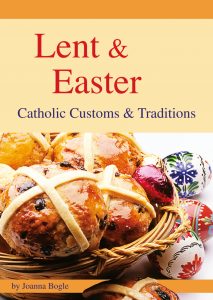Ashes are an ancient symbol of sorrow and mourning. Ashes are all that is left when something is burned. Ashes take us to the very end of things, to death and finality. Using Biblical language, we still sometimes speak of someone “wearing sackcloth and ashes” when they are publicly repenting of something.
“Blow the trumpet in Zion;
sound the alarm on my holy mountain! Let all the inhabitants of the land tremble,
for the day of the Lord is coming, it is near— a day of darkness and gloom,
a day of clouds and thick darkness!
Like blackness spread upon the mountains a great and powerful army comes;
their like has never been from of old,
nor will be again after them in ages to come.
Yet even now, says the Lord, return to me with all your heart,
with fasting, with weeping, and with mourning; rend your hearts and not your clothing.
Return to the Lord, your God, for he is gracious and merciful,
slow to anger, and abounding in steadfast love, and relents from punishing.
Who knows whether he will not turn and relent, and leave a blessing behind him,
a grain-offering and a drink-offering for the Lord, your God?”
A day of fasting
Ash Wednesday is the first day of Lent. The Church decrees that it is a day of fasting and abstinence. This means that all adult Catholics – those aged 14 to 65 – must fast, and abstain from all meat and meat products. That is not very difficult to do: more precisely the Church explains that such fasting means one main cooked meal, and two light snacks. It is not a difficult rule to obey. In fact, more importantly, we should obey its spirit, and make sure we really are eating much less than we would normally do. Traditional dishes for the main meal on Ash Wednesday are fish pie or vegetable casserole. The sick and infirm do not have to fast or abstain.
The ashes
On Ash Wednesday, often at Mass, the priest distributes ashes on our foreheads, saying “Remember man, that you are dust and to dust you shall return” or “Repent, and believe in the Gospel”.
The ashes are made from the palms from the previous year’s Palm Sunday, and are blessed at the beginning of Mass or at the main Mass of the day.
The priest and/or deacon takes a dish of the ashes and as we go forward one by one, he marks our foreheads with ash, making the sign of the Cross. This happens in every Catholic church around the world. The Pope receives the ashes in this way too, – you can even watch the ceremony on the internet.
Called to prayer, fasting and almsgiving
During Lent the Church calls us to penance, prayer, and almsgiving. “Alms” is the old-fashioned word for giving funds for charity, helping the poor and the sick. Until quite recently, the social worker attached to a hospital was still known as an “almoner”.
During Lent, we are each meant to fast and to practice some form of penance: giving up sweets or snacks or alcohol, or perhaps some small luxury such as a favourite magazine or regular stops at a coffee-shop – and the money saved should be given to charity as alms. Even if our chosen penances do not involve saving and giving money, and we might also decide to renounce or ‘give up’ things we like; such as watching television, or spending time surfing the internet, almsgiving remains a central part of Lent.
“At the same time, fasting is an aid to open our eyes to the situation in which so many of our brothers and sisters live. In his First Letter, St John admonishes: “If anyone has the world’s goods, and sees his brother in need, yet shuts up his bowels of compassion from him – how does the love of God abide in him?”(3,17). Voluntary fasting enables us to grow in the spirit of the Good Samaritan, who bends low and goes to the help of his suffering brother (cf. Encyclical Deus Caritas Est 15). By freely embracing an act of self-denial for the sake of another, we make a statement that our brother or sister in need is not a stranger. It is precisely to keep alive this welcoming and attentive attitude towards our brothers and sisters, that I encourage the parishes and every other community to intensify in Lent the custom of private and communal fasts, joined to the reading of the Word of God, prayer and almsgiving. From the beginning, this has been the hallmark of the Christian community, in which special collections were taken up (cf. 2 Co 8-9; Rm 15, 25-27), the faithful being invited to give to the poor what had been set aside from their fast (Didascalia Ap., V, 20,18). This practice needs to be rediscovered and encouraged again in our day, especially during the liturgical season of Lent.” (Pope Benedict XVI 2009)
Obviously, all this is linked to prayer. Many people will make an extra effort to go to daily Mass during Lent, or to drop into church to pray, or to say the Rosary regularly, or to join in the Church’s formal Office of Morning and Evening Prayer, at home or with others.
In secret
The penance we do in Lent is not something we should ever boast about, or even allow to be known. That’s part of the tradition, and what Jesus tells us in the Gospel. The aim is not to draw attention to ourselves or to what we are doing, and to carry on as normal – any public parade of piety, any ostentatious marching to early Mass, missal in hand, or the waving away of chocolates when proffered, is not in the spirit of the thing at all!
“When you fast, do not put on a gloomy look as the hypocrites do; they pull long faces to let men know they are fasting. I tell you solemnly, they have their reward. But when you fast, put oil on your head and wash your face, so that no one will know you are fasting except your Father in heaven who sees all that is done in secret; and your Father who sees all that is done in secret will reward you.” (Mt 6:16-18)
Communal activities
There is also a communal side to Lent, especially so because we are members of the worldwide Church. Family prayers said together in the evening, or a family rosary said in the car, or friends meeting at church on a Friday evening to pray the Stations of the Cross can become traditions.
Schools and Catholic groups will often organise special Lenten events – lunchtime prayers, talks on Lenten themes, boxes for Lenten alms that are then sent to a charity.
During Lent, those who are entering the Church – adult converts who are preparing for baptism, or who are being received into full communion with the Catholic Church, after being brought up in a non-Catholic denomination – will be welcomed into the final stages of their journey. They will be baptised at Easter. Of course it is possible to be baptised and to become a Catholic at any time of the year, but many people choose to join a group that makes this journey together, in this special season.
Pilgrimage and retreat
Many Catholic parishes organise a Day of Recollection or even a full weekend retreat during Lent. Spending time at a place of retreat run by a religious community can re-charge spiritual batteries. Lent is also a time when some people go on pilgrimage – perhaps a simple walk with friends to a shrine or special church, praying together on the way and making the Stations of the Cross. Most parishes will stock booklets during Lent with ideas for these and similar activities.
“Penance can be expressed in many and various ways but above all in fasting, prayer, and almsgiving. These and many other forms of penance can be practised in the daily life of a Christian, particularly during the time of Lent and on the penitential day of Friday.”
Friendship with God
“We might wonder what value and meaning there is for us Christians in depriving ourselves of something that in itself is good and useful for our bodily sustenance. The Sacred Scriptures and the entire Christian tradition teach that fasting is a great help to avoid sin and all that leads to it. For this reason, the history of salvation is replete with occasions that invite fasting. In the very first pages of Sacred Scripture, the Lord commands man to abstain from partaking of the prohibited fruit: “You may freely eat of every tree of the garden; but of the tree of the knowledge of good and evil you shall not eat, for in the day that you eat of it you shall die” (Gn 2, 16-17). Commenting on the divine injunction, St Basil observes that “fasting was ordained in Paradise,” and “the first commandment in this sense was delivered to Adam.” He thus concludes: “ ‘You shall not eat’ is a law of fasting and abstinence” (cf. Sermo de jejunio: PG 31, 163, 98). Since all of us are weighed down by sin and its consequences, fasting is proposed to us as an instrument to restore friendship with God.” (Pope Benedict XVI, 2009)
Yet a great many others will not be aware of Lent or observing it at all. As we know, the shops will be full of Easter bunnies, Easter eggs and other chocolate items. There will be talk of special Easter holiday weekend bargains at resorts and hotels. There will be nothing in the shops to remind us that this festivity is preceded by a season of penance and fasting.
However, the Church comes to our help in celebrating the seasons, and Lent is no exception. In union with Christians around the world and down the centuries, we can benefit greatly from a period of inner conversion and obedience to God’s call.
“He who does not keep the fast in Lent is guilty of prevarication”. (St Ambrose 340-397)
 This blog is extracted from our ebook Lent & Easter: Catholic Customs and Traditions, which describes the rich heritage of customs and traditions long practiced by Catholics down the ages, up to today and how the liturgy in turn enriches their meaning.
This blog is extracted from our ebook Lent & Easter: Catholic Customs and Traditions, which describes the rich heritage of customs and traditions long practiced by Catholics down the ages, up to today and how the liturgy in turn enriches their meaning.
To learn more about Lent and Easter customs, download your copy of Lent & Easter: Catholic Customs and Traditions from your favourite ebook platform.
